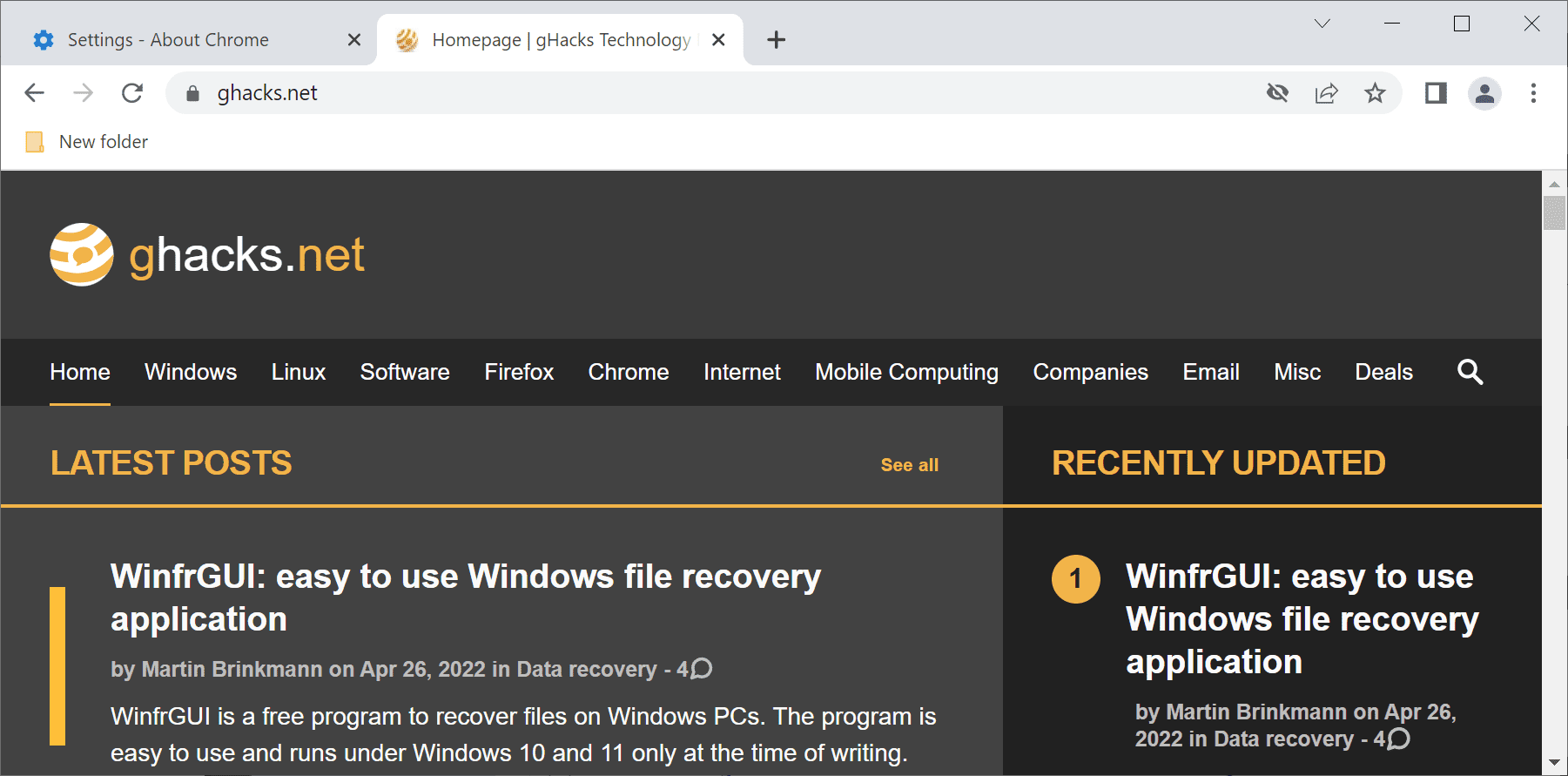Google plans to release a new stable version of the company's Chrome web browser later today. Chrome 101 is released four weeks after the last version of Chrome was released, which was Chrome 100.

The new release is not particularly interesting in regards to new features that Google introduces in it. The Chrome Status page lists just a few, and the majority of the features listed on the page are of interest to developers only.
Controversial trials for advertising APIs begin
Two features that may be of interest to many Chrome users are not listed on the page. It is possible that these are not listed because they are run as trials in the browser. So-called Origin Trials introduce features in Chrome to a subset of users, often to give developers access to these features to implement and test services.
The two features, Topics API and First "Locally-Executed Decision over Groups" Experiment (FLEDGE), are run as Origin Trials in Chrome 101 to 104 on the desktop.
To better understand what these do, it is necessary to look back at the development of Google's privacy sandbox initiative and intention to retire third-party cookies on the Internet. Google's main source of revenue comes from advertising, and the retiring of third-party cookies poses a threat to its core business. Google is now in a position to find something equally lucrative and at the same time less invasive in regards to the privacy of users on the Internet.
Google's first attempt to establish a replacement was called FLoC. Announced several years ago, FLoC, or Federated Learning of Cohorts, moved the tracking from individual users to groups of users. Many companies and organizations, including Brave, DuckDuckGo and Vivaldi, criticized FLoC and announced that they would block it in their browsers and products.
Criticism centered around several core objections:
- With FLoC in place, sites would be informed about a user's group interests, even if the site has never been visited by the particular user.
- FLoC adds another data bit to fingerprinting. Since a FLoC is made up of a few thousand users, it is a small group and as such ideal for fingerprinting.
- Google is in control of sensitive topics, which are not included in interests that are revealed to sites and advertisers.
Google dropped FLoC in early 2022 and announced that it would use Topics instead for its future cookie-less advertising system. Topics runs locally in the web browser. The API uses algorithms to determine topics of interest based on the user's browsing history. The interests are stored locally in the browser for three weeks. When a user visits a site, three of the interests are revealed to the site in question and its advertising partners.
FLEDGE, First "Locally-Executed Decision over Groups" Experiment, is the second advertising technique that Google trials in Chrome versions 101 to 104. The technique moves "the interest data and the final ad decision" to the local browser. Google hopes that the technique addresses core privacy concerns while giving advertisers enough data to display advertisement that is potentially of interest to users.
Topics and FLEDGE are not without criticism either. Both do not address the issue with the selection of sensitive topics. A Microsoft Edge developer published a short script in mid-2021 that could be used for cross-site tracking with FLEDGE.
Chrome 101 will launch later today.
Now You: What is your take on these new techniques?
Thank you for being a Ghacks reader. The post Chrome 101 ships with controversial advertising system trials appeared first on gHacks Technology News.

0 Commentaires